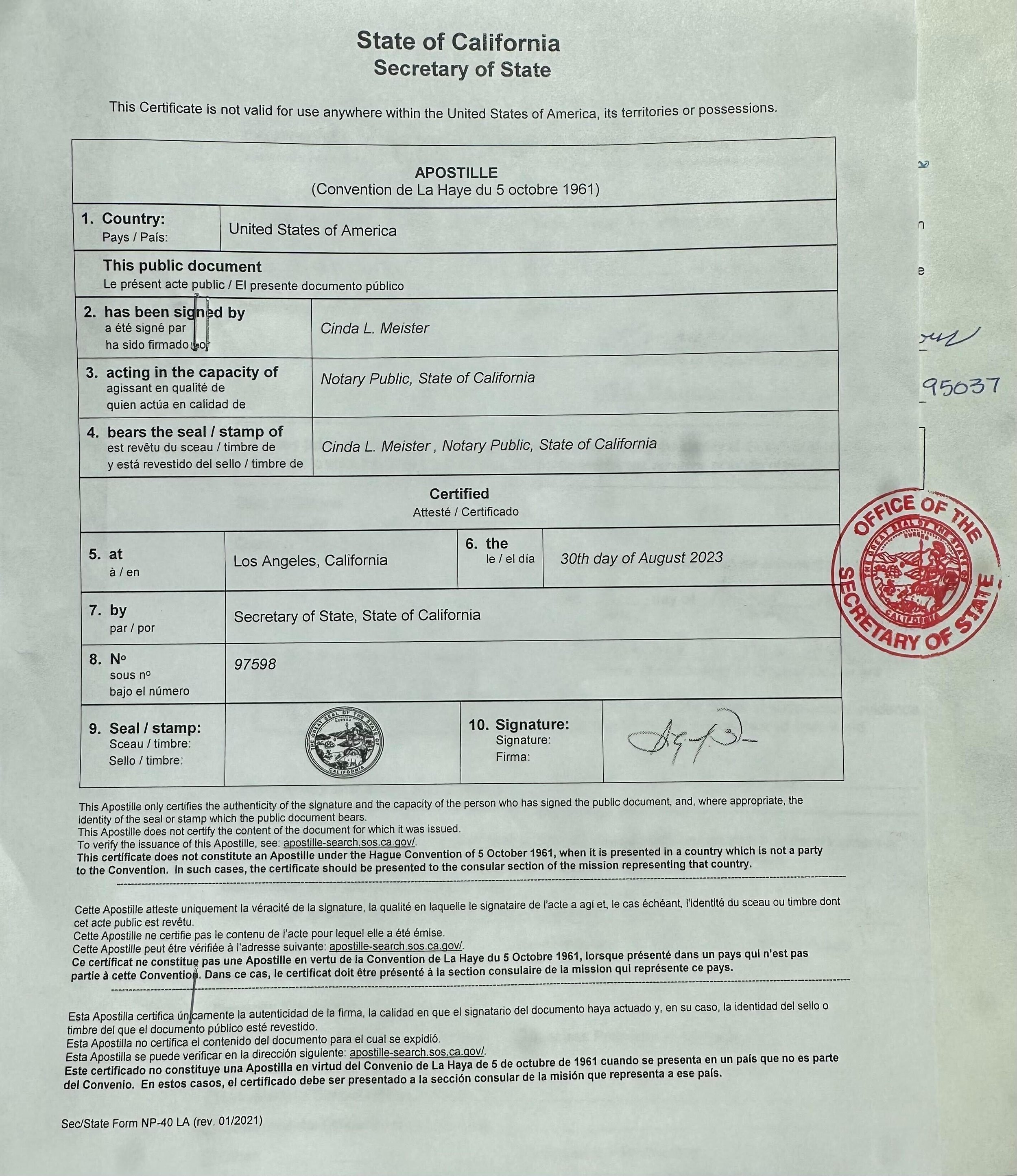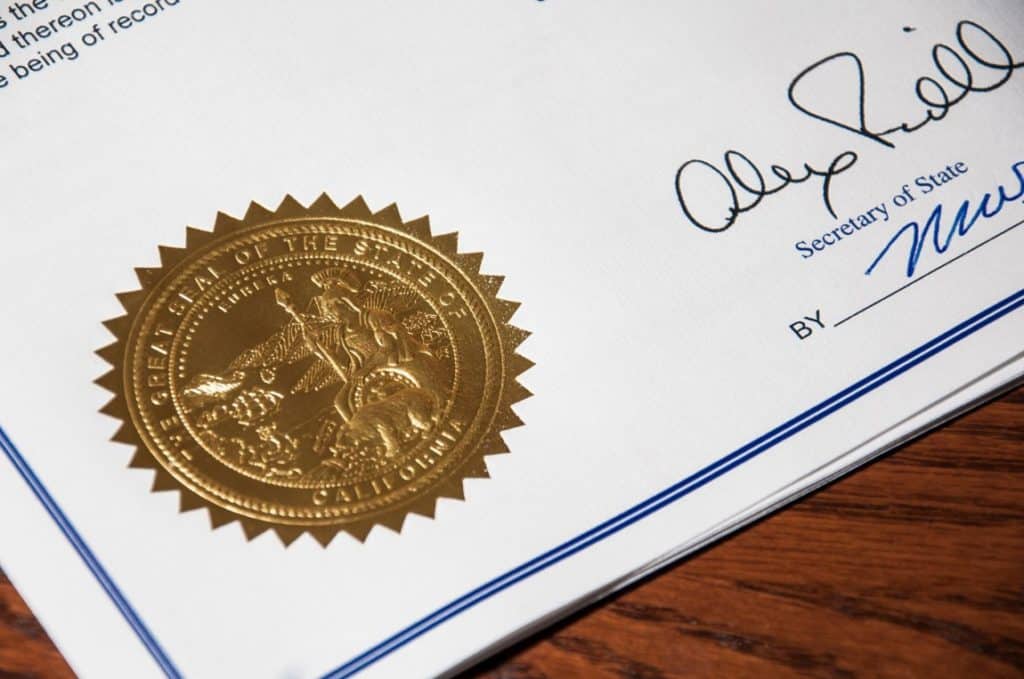Trusted Houston Apostille Services-- Rapid and Specialist Support
Recognizing the Apostille Refine: A Comprehensive Guide to International File Authentication
Navigating the intricate landscape of worldwide paper authentication can be discouraging without a clear understanding of the apostille procedure. This guide thoroughly lays out the needed actions, from identifying which papers call for qualification to submitting them for confirmation by the Competent Authority. Comprehending the relevance of an apostille and recognizing potential mistakes, such as insufficient submissions and language obstacles, can significantly improve the authentication journey. What exactly specifies an apostille, and why is it so vital for records predestined for Hague Convention nations? These questions form the structure of our exploration into this vital legal procedure.
What Is an Apostille?
An apostille is a main accreditation that confirms the credibility of a document for usage in an additional nation. This accreditation, provided by a designated authority in the country where the document originated, ensures that the record is identified as valid and legitimate in the international arena. The procedure of acquiring an apostille involves several actions, including the confirmation of the document's signatures, seals, and stamps by proper governmental bodies.
The apostille acts as an internationally recognized kind of verification, made feasible by the Hague Convention of 1961. This treaty, officially understood as the Hague Convention Eliminating the Requirement of Legalisation for Foreign Public Papers, systematizes the procedure of record certification amongst participant countries. The apostille itself is a standardized certification that has particular details, such as the releasing authority, the country of origin, and the day of issuance.
It is necessary to keep in mind that not all documents are eligible for an apostille. Normally, public papers like birth certifications, marriage licenses, court orders, and educational diplomas qualify for this certification. Private files, such as contracts and arrangements, might require notarization and added steps to certify.
Importance of Apostille
Comprehending what an apostille is sets the phase for valuing its value in global transactions. houston tx apostille. An apostille, basically a form of accreditation provided by a designated authority, verifies the credibility of a file for usage in foreign countries that are signatories to the Hague Apostille Convention. This standard procedure eliminates the requirement for additional legalisation by embassies or consular offices, thereby improving global purchases
It guarantees the integrity and acceptance of vital papers-- such as birth certifications, marital relationship licenses, and academic diplomas-- throughout boundaries. For services, it assists in the smooth conduct of worldwide profession, mergers, and purchases by offering a trusted method of document verification.
Moreover, an apostille enhances lawful protection and conformity. Federal governments and establishments can confidently count on the authenticity of records birthing an apostille, alleviating the danger of fraudulence and misstatement. Therefore, the apostille works as an important tool in promoting international collaboration and depend on. Its role in fostering reliable and protected international purchases underscores its crucial worth in today's see it here interconnected world.
Papers That Need Apostille
When participating in worldwide purchases or lawful issues, particular records typically demand the authentication Look At This given by an apostille. This guarantees their acknowledgment and acceptance in countries that are signatures to the Hague Apostille Convention. Commonly, personal files such as birth certifications, marital relationship certificates, and death certifications call for an apostille, particularly when they are used for processes like immigration, marital relationship abroad, or global probate matters.
Educational files are another classification often requiring apostilles. Diplomas, records, and academic documents frequently need this authentication for functions such as going after more education and learning, work, or specialist licensing in an international country (houston tx apostille). This step ensures that the papers are identified as reputable and valid
Legal documents, including powers of attorney, sworn statements, and court orders, likewise frequently require apostilles. Business files such as certificates of consolidation, bylaws, and commercial agreements may need an apostille to assist in worldwide trade, develop foreign branches, or involve in cross-border legal procedures.
Actions to Obtain an Apostille

Acquiring an apostille includes you can find out more a multi-step process that makes sure the authenticity and acceptance of your records in international nations. The preliminary step is determining which files need an apostille. houston tx apostille. Typical files include copyright, marital relationship licenses, scholastic transcripts, and corporate papers
As soon as determined, the file must be licensed by the proper releasing authority. This could entail notarization by a notary public or verification by a neighborhood or state authorities, depending on the kind of record. After qualification, the file should be sent to the assigned Competent Authority in the file's native land. In the United States, as an example, this is usually the Secretary of State's workplace for every state.
The submission procedure typically requires a completed application, the original document, and a fee. Some territories may supply the alternative of expedited handling for an added charge. Upon successful verification, the Competent Authority will certainly affix the apostille certificate to the paper, thereby validating its authenticity.
Typical Difficulties and Solutions
Navigating the apostille procedure can offer numerous common challenges that, if not correctly resolved, might delay or make complex file verification. Each nation has details needs for the kinds of files that can be apostilled, and any type of discrepancy from these can result in denial.
An additional typical obstacle is understanding the varied processing times. Processing times can differ substantially between countries and even between different areas within the very same nation. It is important to account for these variants when intending the apostille procedure to prevent unexpected hold-ups.
In addition, language obstacles can present considerable challenges. Records in an international language typically need licensed translations, and any mistakes in translation can result in additional problems. Engaging a specialist translation solution can reduce this risk.

Final Thought
Mastering the apostille process significantly boosts the performance of global file authentication. By understanding the requirement of determining and certifying called for papers, and navigating the submission to the Competent Authority, the procedure ends up being a lot more workable. Awareness of usual difficulties, such as incomplete entries and language obstacles, better help in avoiding possible hold-ups. Ensuring files are appropriately apostilled facilitates their approval in Hague Convention signatory countries, thereby sustaining seamless global legal and administrative treatments.